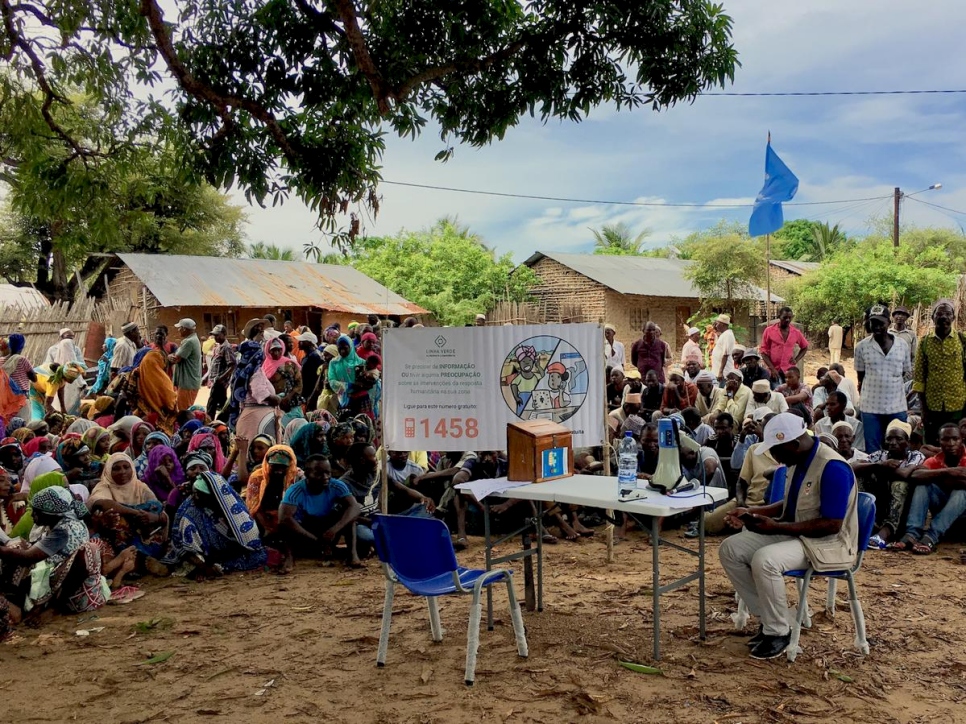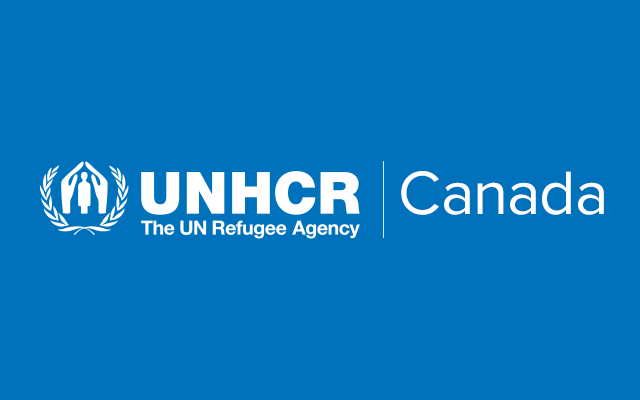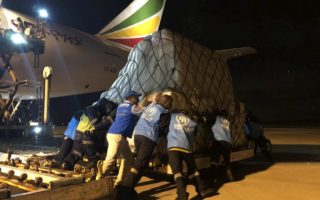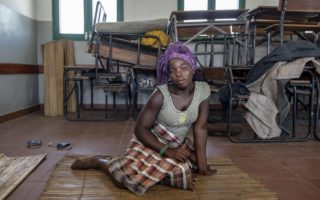
Mozambicans uprooted by escalating violence gather for a food distribution in Mocimboa da Praia, in Cabo Delgado province, Mozambique, December 2019. © UNHCR/Eduardo Burmeister
This is a summary of what was said by UNHCR spokesperson Andrej Mahecic – to whom quoted text may be attributed – at today’s press briefing at the Palais des Nations in Geneva.
UNHCR, the UN Refugee Agency, is boosting its response in Mozambique’s Cabo Delgado province where recent escalation of violence forced thousands to flee for their lives. At least 100,000 people are now displaced throughout the province.
There has been a dramatic increase of brutal attacks by armed groups over the past months, with the recent weeks being the most volatile period since the incidents began in October 2017. In total, at least 28 attacks were carried out in the province since the beginning of the year. The attacks have now spread across nine out of the 16 districts in Cabo Delgado. The province is one of the least developed parts of Mozambique. Attacks are now spreading towards the southern districts of Cabo Delgado, prompting people to flee to Pemba, the provincial capital. One of the latest incidents took place only 100 kilometres away from Pemba.
Armed groups have been randomly targeting local villages and terrorizing the local population. Those fleeing speak of killings, maiming, and torture, burnt homes, destroyed crops and shops. We have reports of beheadings, kidnappings and disappearances of women and children.
The attackers’ at times warn the local population where and when they will strike, creating panic as people rush to flee their villages. Most leave everything behind, having no time to take any belongings, food or ID documents. So far hundreds of villages have been burned or are now completely abandoned as attackers carry out a wide and indiscriminate campaign of terror. Government institutions have also been targeted.
Civilians have fled in many directions, including to small islands, where many have nowhere to stay. Some, among them many children and women, are sleeping rough and have limited access to clean water. The majority of the internally displaced persons (IDPs) have taken refuge with families or friends adding pressure to already meagre local resources. Many displaced live in very poor conditions. Six people died of diarrhoea last month on Matemo island.
In response to the rapidly deteriorating humanitarian situation, and at the request of the Mozambican Government to all humanitarian agencies, UNHCR is expanding its presence in the province to better respond to the growing needs of the displaced population. Many are survivors of violence and human rights violations and in urgent need of protection and psycho-social support.
UNHCR will help coordinate all protection activities in partnership with the Government. UNHCR will be deploying additional aid and staff to meet the need, initially for 15,000 IDPs and hosts communities in the coming weeks.
Many areas affected by the attacks have also been devasted by cyclone Kenneth in April 2019. At that time, some 160,000 people had been directly impacted and were in need of assistance. People in Cabo Delgado have also been seriously affected by recent floods, which destroyed bridges, further limiting their access to food and other resources.
UNHCR is appealing for urgent and strong support to scale up its response in Mozambique. Meanwhile, UNHCR is committing US$ 2 million from its operational reserve in order to meet the initial needs.
For more information on this topic, please contact:
- In Pretoria, Helene Caux, caux@unhcr.org, +27 82 376 5190
- In Cabo Delgado province, Eduardo Burmeister, burmeist@unhcr.org, +258 84 322 7071
- In Maputo, Samuel Chakwera, chakwera@unhcr.org, +258 84 330 2799
Originally published by UNHCR on 07 February 2020





